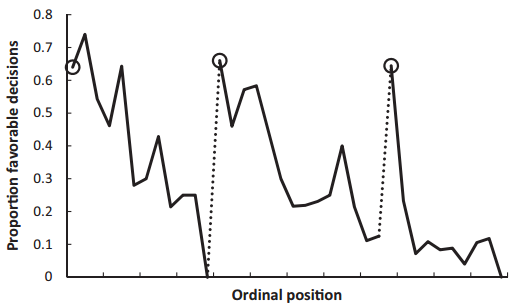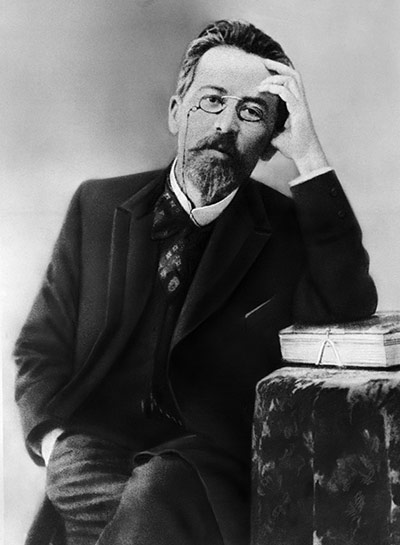You might think that the difference between a car that has been driven 49,999 miles and one that has been driven 50,001 miles is… 2 miles. But you would miss out on another big difference – in the price a buyer would be willing to pay for those two vehicles. Here’s a graph showing just how important these arbitrary milestones are in people’s willingness to pay for used cars:
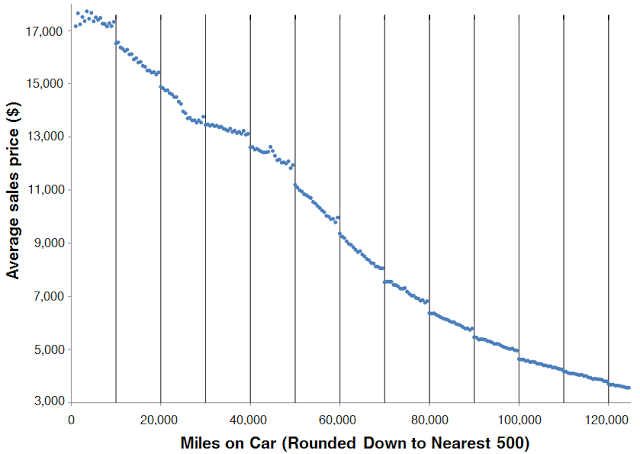
Keep this in mind next time you need to sell one of your cars.
(Click here to view comments)
Careful When You Come Up For Parole
Parole boards are supposed to objectively assess whether inmates eligible for parole deserve to be released from prison before the end of their sentence. They need to determine whether people are reformed, whether they have been behaving themselves in prison, and whether they pose unacceptable risks to society. But it turns out their decisions may be influenced by whether they need a snack break or a trip to the restroom. Here’s a wonderful graph from the University of Stirling website, showing that parole board officers are much more likely to be lenient early in each of their work sessions, while getting more stringent all the way up to their next work break:
So much for objective decision-making!
Why I’m Not Sad That I Can’t Fly

I remember one time having a conversation with Daniel Kahneman, one of the founders of behavioral economics, about the topic of happiness and emotional adaptation, in the context of chronic disability. We were discussing emotional impact of experiencing a limb amputation. Kahneman pointed out that it is the loss of the limb that is really important, more so than the absence of the limb. Remember him discussing why he’s not unhappy about lacking a third arm, even though such an arm could be quite useful. His point was it’s hard to miss something you’ve never had.
I just came across a similar sentiment, when reading Andrew Solomon’s Far from the Tree. Here is his take on the topic:
“If most people could flap their arms and fly, the inability to do so would be a disability. If most people were geniuses, those of moderate intelligence would be disastrously disadvantaged.”
Nicely said!
Malpractice Reform Could Benefit Patients More Than Doctors
 The U.S. medical malpractice system is broken. It frequently does not punish doctors who need punishing, while levying fines against doctors who did nothing wrong. And this dreadfully inaccurate system still manages to take almost five years, on average, to settle claims.
The U.S. medical malpractice system is broken. It frequently does not punish doctors who need punishing, while levying fines against doctors who did nothing wrong. And this dreadfully inaccurate system still manages to take almost five years, on average, to settle claims.
Experts have been promoting a type of reform known as “safe harbor rules,”…
(Read more and view comments at Forbes)
Why It Sometimes Doesn't Pay, Literally, To Take Medicaid Patients
I have written a couple of pieces lately documenting the high percentage of physicians who refuse to take Medicaid patients, and some of the reasons for their refusal. One of my pieces prompted a physician to email me with his take on this matter. I am going to quote from that email, but take out identifying information to protect his anonymity. Here’s what he said:
I had the experience of dealing with Medi-Cal (California’s name for its’ Medicaid plan) in the early 90s when I had started a primary care solo practice. Of 40 primary care docs in a 3 mile radius of my office, I was one of three who accepted Medi-Cal.
The payment for any office visit was so low that it bordered on punitive. The state paid approx 1/3 of the average commercial rate at that time and actually decreased the rate and payment over the past 20 years. California, perhaps not unique compared to all states, also had a nasty habit of stopping payment for any Medi-Cal billed services when the budget for that year ran out, even if that was after 7-8 months. Practices that absolutely depended on Medi-Cal reimbursement went unpaid until the start of the next fiscal year, at which time the backdue payments would trickle in until the next stoppage.
I understand that politics is a messy business, and that government spending can be unpredictable. And I realize that in the real business world, the ins and outs of money are often unpredictable, too. But when someone says they’re going to pay you for the service you provide, that payment should be timely and appropriate. Far too often, state Medicaid programs fail on both accounts…(Read more and view comments at Forbes)
Obesity Really DOES Kill
There has been controversy recently about whether obesity is truly bad for people’s health, or in fact whether it might even protect people from early mortality. A study from the New England Journal in January provides strong evidence that obesity kills. It shows that people with very low body mass index have high mortality rates, something experts have recognized for a long time. Many people with very low BMIs are skinny because they are sick. Once you get to normal BMIs and above, however, the trend is clear. A higher BMI means a higher risk of death. Here is a figure from that article:
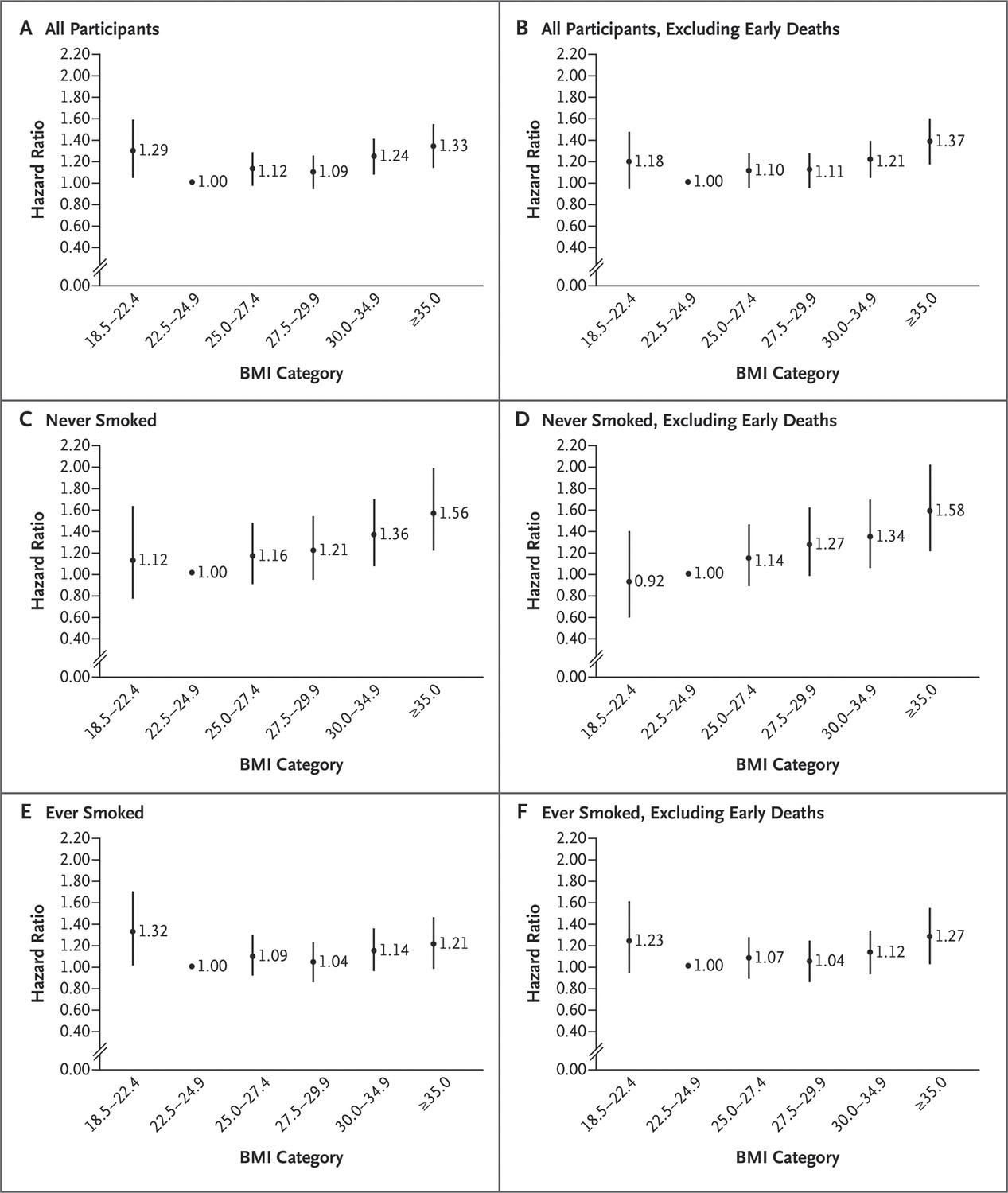
Remember this picture when you contemplate whether governments should make policies to combat obesity. Such policies should not be heavy-handed, and should set a balance between liberty and the promotion of people’s well-being. But in setting a balance, it is important to remember this – lives are at stake!
(Click here to view comments)
The Cost of Saying No to Medicaid Expansion
Here is a nice picture, from a HuffPo article , showing how much money states are losing by not expanding Medicaid in accordance with the Affordable Care Act:
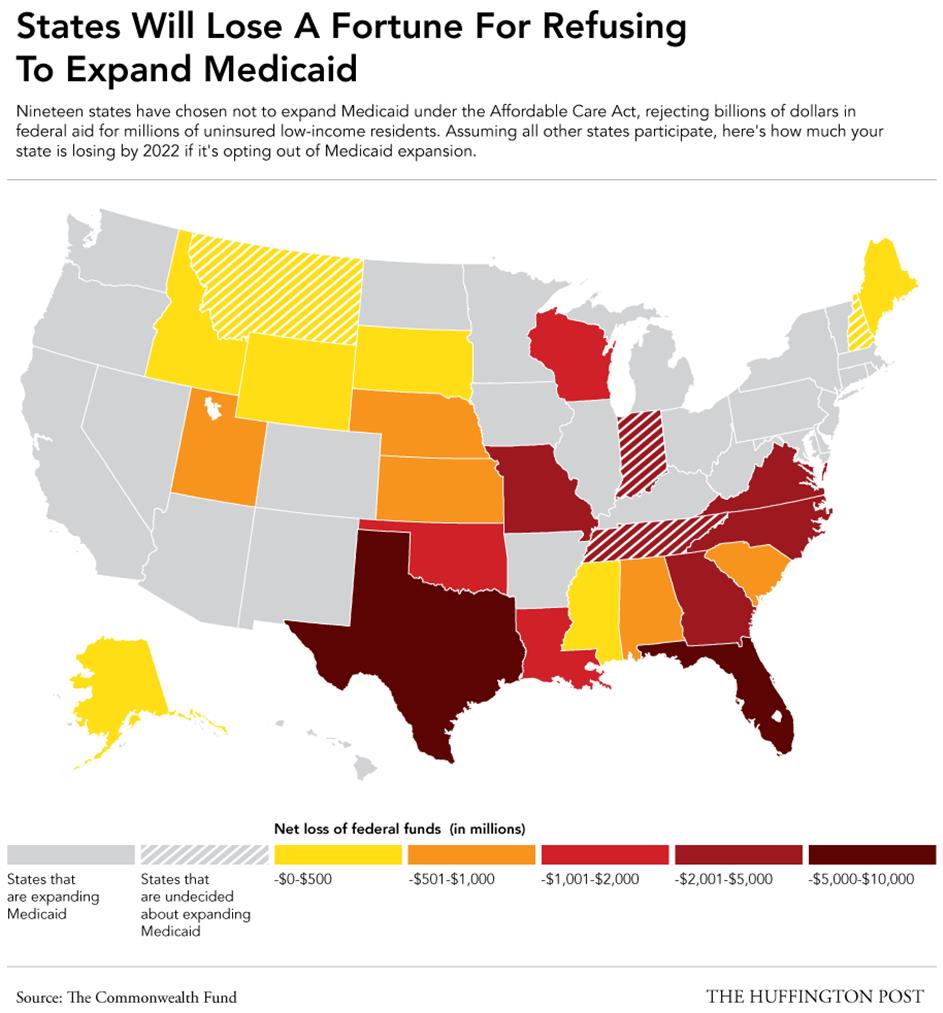 Not a small change, by any measure. Shows how much it means to some folks to prove their anti-ACA bonafides. What is too often lost, in this political maneuvering, are the millions of people who will not have access to health insurance coverage. Very sad.
Not a small change, by any measure. Shows how much it means to some folks to prove their anti-ACA bonafides. What is too often lost, in this political maneuvering, are the millions of people who will not have access to health insurance coverage. Very sad.
Quote of the Day
“When many remedies are proposed for a disease, that means the disease is incurable.”
-Anton Chekhov
A Clever Nudge to Reduce Waste of Natural Resources
I teach a course on behavioral economics and public policy at Duke University. One of my former students recently emailed me a picture of a bill he received in the mail. It looks like conEdison is trying to remind him to pay his bills electronically, so they don’t have to send him a bill in the mail.
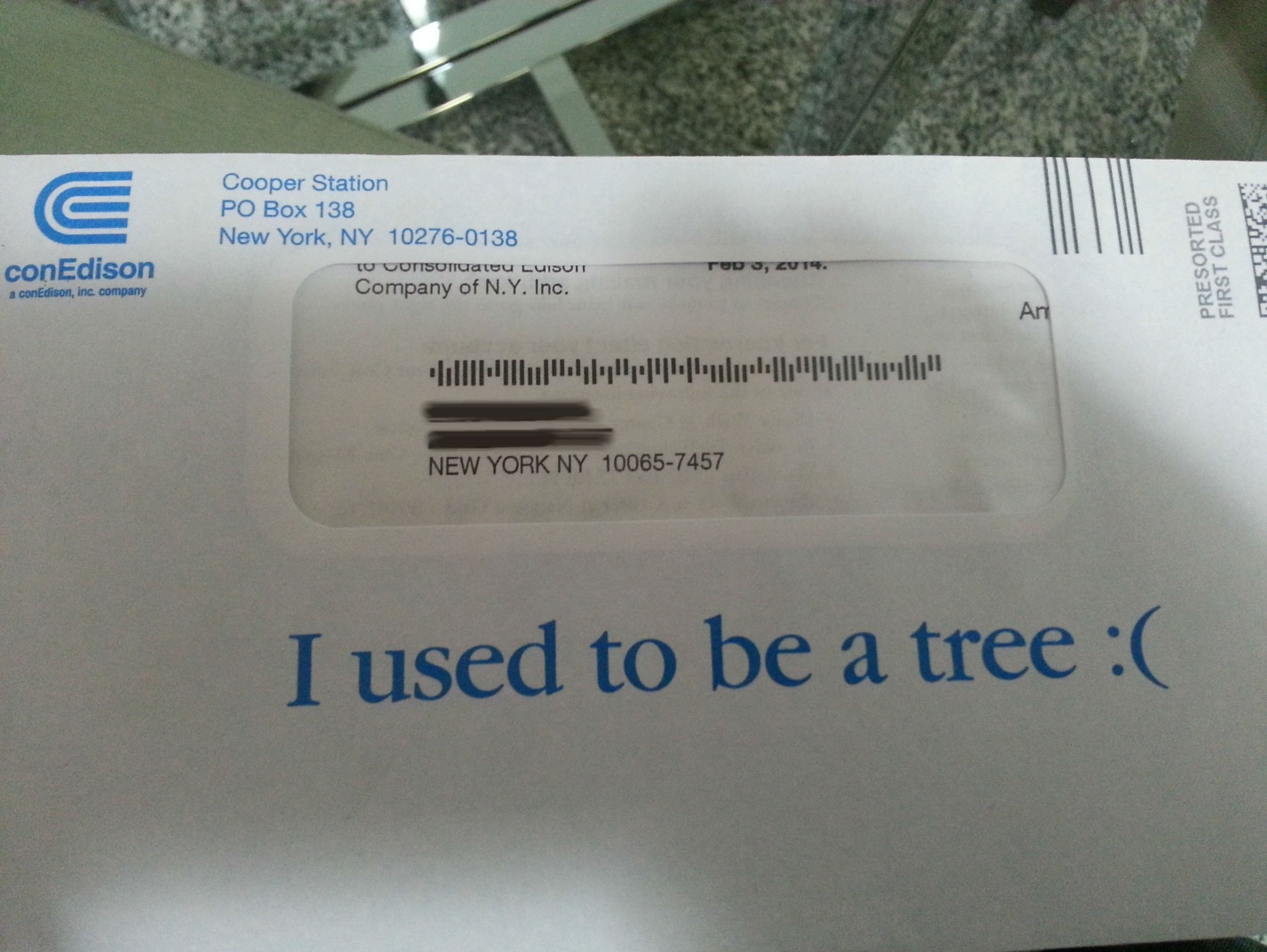
Any thoughts on how to make this nudge more effective?
How Obamacare Helps Women
Here is a picture from a recent Atlantic article, showing that, pre-Obamacare implementation, women have more difficulty paying for medical care:
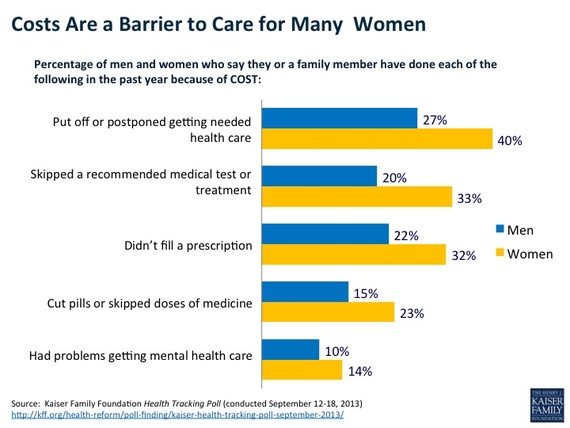
The ACA should fix improve this situation, meaning Obamacare should help women more than men.
(Click here to view comments)

